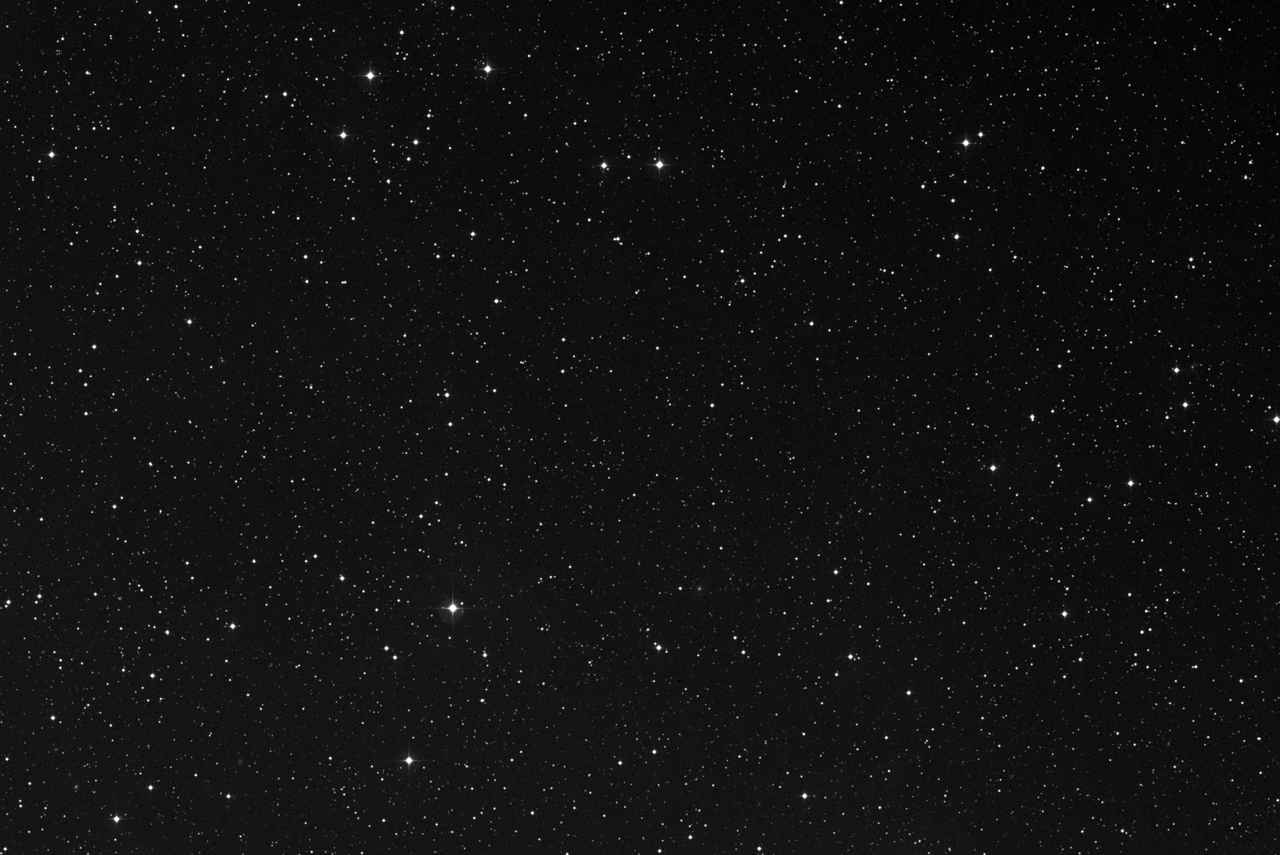Voyager 1
Voyager 1 is in the constellation of Ophiuchus, at a distance of
Finder Charts
The sky charts below show, at different resolutions, the position of Voyager 1 in the sky. Click on each chart to access the interactive star map tool.
The following map uses photographic imagery from the Digitized Sky Survey (DSS) to realistically visualize the precise position of Voyager 1 against the stars in the background. The horizontal size of the map measures 60 arcminutes. Click on the image to access a more detailed full-screen view.


Equatorial Coordinates
Apparent
J2000
Additional Information
Rise and Set Times
The following table lists today's rise, transit and set times of Voyager 1 from Ravenstone, United Kingdom (all times relative to the local timezone Europe/London):
If you need to access this information frequently for your observations, you can create a simple customized Quick Access page, so that you can easily bookmark it in your browser favorites or add a shortcut to your mobile phones' home screen.
Distance from Earth
The distance of Voyager 1 from Earth is currently
The following graph shows the distance of Voyager 1 from Earth as a function of time. In the chart the distance is measured in Astronomical Units and the data is sampled with an interval of 1 day.
Note: The values in this chart may not be entirely accurate around the time of closest approach for objects passing very close to Earth at high speed (e.g., Near-Earth Objects).
The value of the distance of Voyager 1 from Earth is also available as a real time updated value in the live position tracker.
Closest Approach to Earth
In the period between January 1, 2013 and December 30, 2099, the closest approach of Voyager 1 to Earth happened on Monday 22 April 2013 at a distance of 123.348498 Astronomical Units, or 18,452,672,648 kilometers:
Note: the values for the closest approach are computed with a sampling interval of 1 day.
Orbit Visualization
The following chart is a 3D animated visualization of the orbit of Voyager 1 relative to the other major objects in the Solar System.
15 Days Ephemeris
The following table lists the ephemerides of Voyager 1 computed for the past and next 7 days, with a 24 hours interval. Apparent celestial coordinates are provided.
| Date | Right AscensionR.A. | DeclinationDec. | MagnitudeMag | Constellation |
|---|---|---|---|---|
| Jun 26 2025 | 17h 16m 16s | +12° 23’ 38” | N.A. | Ophiuchus |
| Jun 27 2025 | 17h 16m 14s | +12° 23’ 36” | N.A. | Ophiuchus |
| Jun 28 2025 | 17h 16m 13s | +12° 23’ 34” | N.A. | Ophiuchus |
| Jun 29 2025 | 17h 16m 12s | +12° 23’ 32” | N.A. | Ophiuchus |
| Jun 30 2025 | 17h 16m 10s | +12° 23’ 30” | N.A. | Ophiuchus |
| Jul 01 2025 | 17h 16m 09s | +12° 23’ 27” | N.A. | Ophiuchus |
| Jul 02 2025 | 17h 16m 08s | +12° 23’ 24” | N.A. | Ophiuchus |
| Jul 03 2025 | 17h 16m 06s | +12° 23’ 21” | N.A. | Ophiuchus |
| Jul 04 2025 | 17h 16m 05s | +12° 23’ 18” | N.A. | Ophiuchus |
| Jul 05 2025 | 17h 16m 04s | +12° 23’ 14” | N.A. | Ophiuchus |
| Jul 06 2025 | 17h 16m 03s | +12° 23’ 10” | N.A. | Ophiuchus |
| Jul 07 2025 | 17h 16m 01s | +12° 23’ 07” | N.A. | Ophiuchus |
| Jul 08 2025 | 17h 16m 00s | +12° 23’ 02” | N.A. | Ophiuchus |
| Jul 09 2025 | 17h 15m 59s | +12° 22’ 58” | N.A. | Ophiuchus |
Additional Resources on TheSkyLive
- Voyager 1: Complete reference information on TheSkyLive.com.
- Where is Voyager 1?: Key information on where to find Voyager 1 in the sky.
- Distance of Voyager 1 from Earth: Find out how far Voyager 1 is from Earth right now.
- Rise and Set Times: Rise and set times of Voyager 1 from your location.
- Interactive Sky Map: Planetarium-style interactive visualization of Voyager 1's position in the sky.
- Live Position Tracker: High precision real time tracker of Voyager 1's position using deep space imagery.
- Ephemeris: 15 days Voyager 1's computed ephemeris.
- Orbit Visualization: 3D interactive visualization showing the orbit of Voyager 1 with respect to the major Solar System objects.










